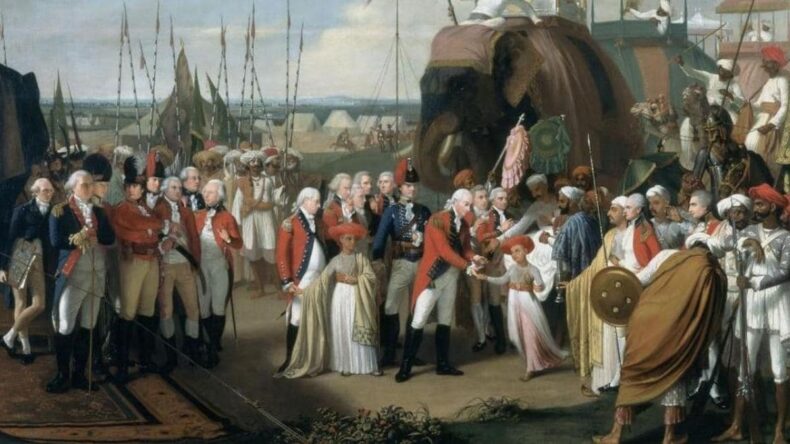Why did Britishers came to India?
The Britishers, also known as The East India Company, first came on August 24, 1608, to Surat as traders. They traded with spices that were available only in India. Apart from that, they primarily traded in silk, cotton, indigo dye, tea, and opium.
At that time, India was rich in spices and recorded history, going back 4000 years to the Indus Valley Civilisation in Harappa and Mohenjo-Daro. Britain had no indigenous written language until the 9th century, almost 3000 years after India.
The British first landed in India in Surat for trade. Here’s why Britishers started to invade India.
What is the East India Company?
To buy spices, which were in high demand in Britain and Europe, the British initially built commercial stations in India. At first, they came to trade with India rather than annex it. A British joint-stock company called The East India Company, which was founded in 1600, was in charge of regulating trade with India. The Anglo-Indian trade was monopolized by the East India Company. Private shareholders, including wealthy businessmen and nobles, owned the enterprise. The firm gradually increased its influence in British affairs while making extraordinary profits from India’s trade. To protect its interests, it eventually established a private army, which was later used to seize the land.
The East Indian Company established an army in the 1750s that was made up of British officers and Indian men.
Robert Clive commanded the company’s armies in the 1750s (later Clive of India). The Nawab of Bengal and his French allies were destroyed at the Battle of Plassey in 1757 by Clive, who proved to be a brilliant general. Then, corporations became India’s most powerful entities as a result of this triumph. Clive and the other company commanders
How Britishers started Trading.

The East India Company, in turn, was influenced by the British government, which exploited it to further its interests in India by the year 1760, putting a large portion of the subcontinent under the direct or indirect control of the organization. In actuality, London permitted the East Indian Company to dominate India. Through the East India Company, the British grew their power in the final years of the eighteenth century. Native kings like Tipu Sultan and the mighty Sikh Empire repelled them. Later, the Duke of Wellington, Arthur Wellesley, made substantial wins against the independent Indian nations.
By 1800, the East India Company, which was governed by the British government, had control over most of the Indian subcontinent.
It must be kept in mind that the company had no intention of annexing India. They wanted to increase their power and take advantage of the wealth of the subcontinent. There was no centralized strategy to control India and its leaders. Instead, as a result of their strengths and India’s weaknesses, they gradually came to control us.
How Britishers started to invade us.
India at this time was divided between numerous rival local leaders, in addition to being weak. A large portion of India experienced extreme instability as a result of the Mughal Empire’s disintegration. The local leaders engaged in constant conflict. Along with their fellow believers, Muslims and Hindus engage in conflict. By the early eighteenth century, war was rife throughout much of the subcontinent. Especially in the latter half of the eighteenth century, many Indians applauded Britain’s stability but opposed the many tariffs the Europeans put on them.
When it comes to running their new colonies in India, the British used a cunning technique. For a while, they didn’t manage most of their new areas themselves. The local leaders, with all of their rights and wealth, were frequently retained in place. They also avoided interfering with the elite landowners in the area. They made use of them to levy taxes and maintain law and order in exchange for some degree of local autonomy. Due to these strategies, many Hindu and Muslim local elites welcomed British dominance.
They reached an understanding with the regional Rajs, Nawabs, and Sultans rather than just annexing several states. As long as they declared the British their successors, they pledged to refrain from attacking regional leaders. As a result, the British received a large number of tiny properties upon the passing of a ruler. The British also participated. Additionally, the British signed agreements with regional leaders that made it possible for them to peacefully annex these regions. Instead of asking for taxes, they would offer to post-military military units in a princely state. A “resident” was also chosen to counsel the ruler.
Read More:- “India aims to become a developed nation in @25 years ahead: PM Modi”













